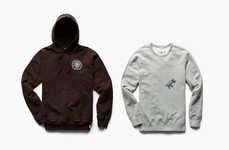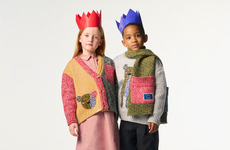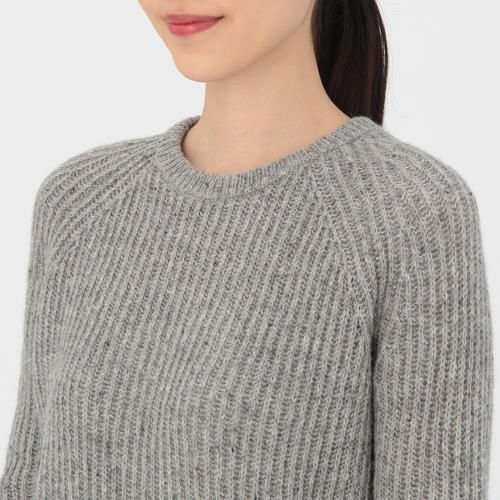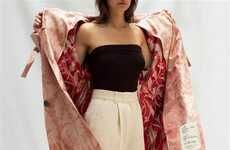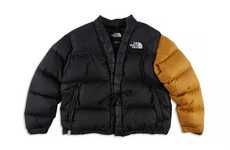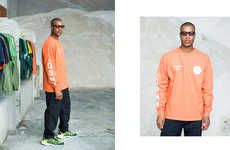
Reiko Sudo's ReMUJI Sweaters Use a Historical Japanese Praxis
References: nuno & fastcodesign
Reiko Sudo, a textile artist, has collaborated with Japanese house ware brand MUJI to create the ReMUJI series. Taking inspiration from a centuries old practice of thrift, the ReMUJI textiles are made from recycled wool.
Japan has very few native sheep on its islands, but wool has always been an excellent material for clothing and upholstery. In the 19th century, Japanese artisans thus invented a way to reuse the little wool that they managed to acquire from trade with other countries. The ReMUJI collection makes use of this venerable technique in all of its textiles.
There are 13 total piece in the collection, including sweaters, bags, accessories, and pillows. According to Sudo, it took the team at MUJI nearly four years to collect enough raw materials to create all the pieces in the collection.
Japan has very few native sheep on its islands, but wool has always been an excellent material for clothing and upholstery. In the 19th century, Japanese artisans thus invented a way to reuse the little wool that they managed to acquire from trade with other countries. The ReMUJI collection makes use of this venerable technique in all of its textiles.
There are 13 total piece in the collection, including sweaters, bags, accessories, and pillows. According to Sudo, it took the team at MUJI nearly four years to collect enough raw materials to create all the pieces in the collection.
Trend Themes
1. Recycled Textile Products - Using recycled materials to create textiles for products, reducing waste and promoting sustainability.
2. Traditional Techniques in Modern Design - Incorporating historical and cultural techniques into contemporary designs to create unique and meaningful products.
3. Local Sourcing and Production - Utilizing locally-sourced materials and production processes to create products with a lower environmental impact.
Industry Implications
1. Fashion and Apparel - Utilizing recycled materials and traditional techniques to create sustainable and culturally meaningful fashion and apparel products.
2. Home Goods - Creating unique, sustainable, and culturally relevant home goods products using recycled materials and traditional techniques.
3. Textile Manufacturing - Incorporating local sourcing and sustainable production practices into the manufacturing of textiles and textile products.
4
Score
Popularity
Activity
Freshness


